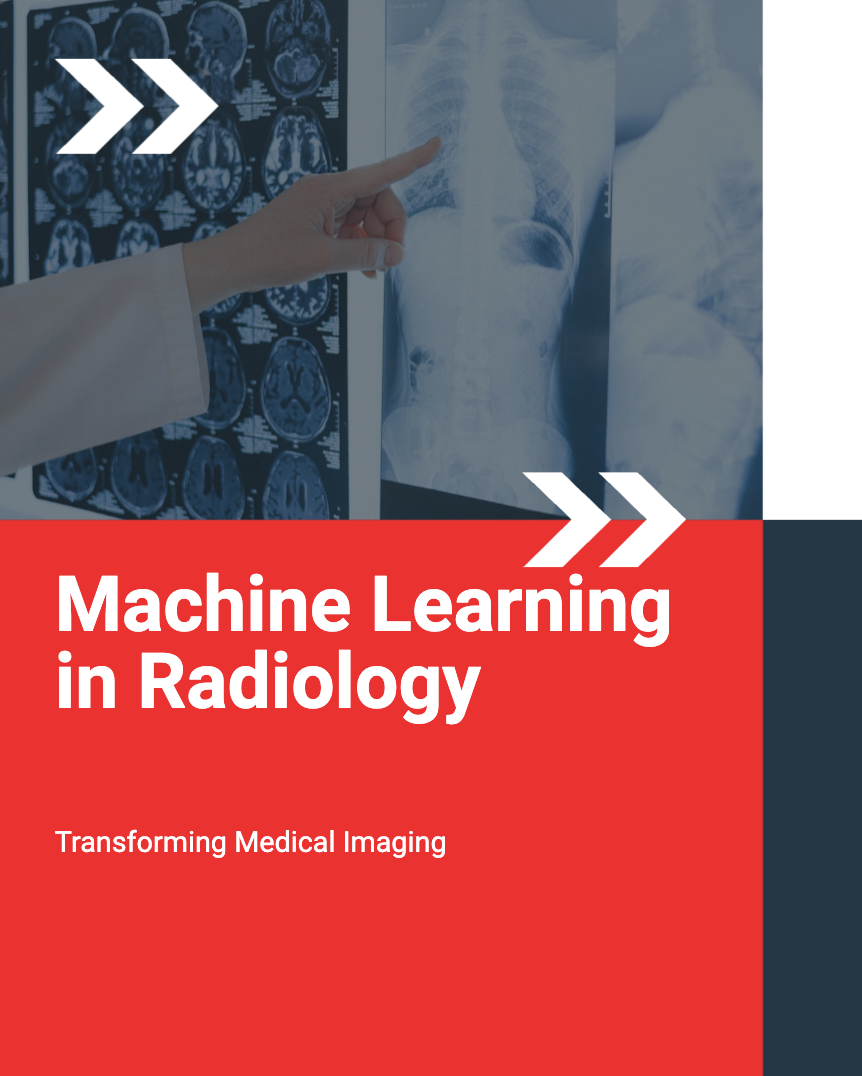
The integration of machine learning (ML) in radiology is transforming how medical professionals diagnose diseases and plan treatments. With artificial intelligence (AI)-powered tools, radiologists can analyze medical images faster and more accurately, leading to earlier disease detection, better patient outcomes, and reduced workload for healthcare providers.
Machine learning is a subset of AI that enables computers to learn from data and make predictions without explicit programming. In radiology, ML algorithms analyze medical images such as X-rays, MRIs, CT scans, and ultrasounds to detect abnormalities that might be missed by the human eye.
How Machine Learning Works in Radiology
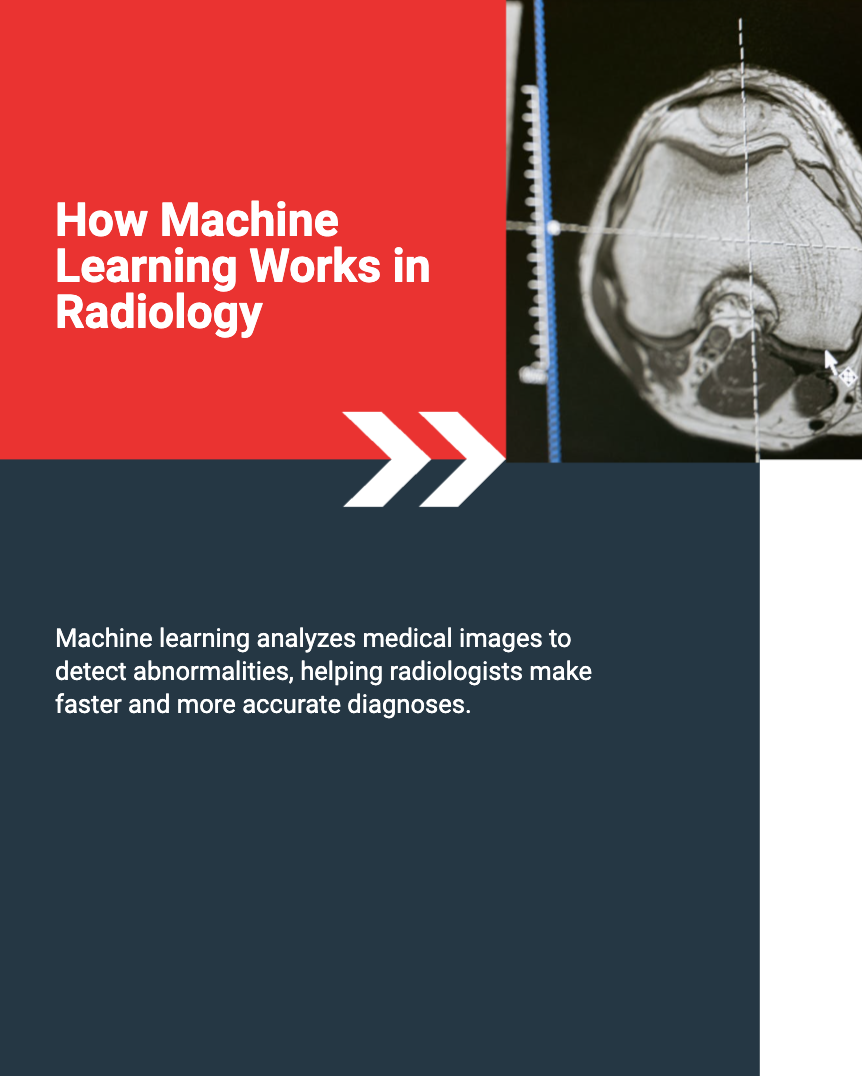
Machine learning is enhancing the accuracy and speed of disease detection, making radiologists more efficient.
1. Early Detection of Diseases
ML models excel in detecting conditions like cancer, fractures, and brain disorders earlier than traditional methods. For example:
2. Automated Image Analysis
Radiologists analyze thousands of images daily, increasing the risk of human error. Machine learning automates image segmentation, classification, and anomaly detection, reducing workload and improving accuracy.
3. Reduced False Positives and Negatives
Machine learning minimizes false diagnoses by distinguishing benign anomalies from malignant tumors more effectively than manual assessment.
Beyond diagnostics, machine learning optimizes treatment planning by predicting patient responses and personalizing therapies.
1. Personalized Treatment Recommendations
ML algorithms analyze patient history, genetic markers, and medical images to recommend tailored treatment plans for diseases like cancer and stroke.
2. Radiation Therapy Optimization
Machine learning enhances radiation dose planning in cancer treatment by:
Precisely targeting tumors while minimizing damage to healthy tissues.
Reducing planning time for radiation therapy.
3. Predicting Treatment Outcomes
By analyzing past patient data, ML models predict:
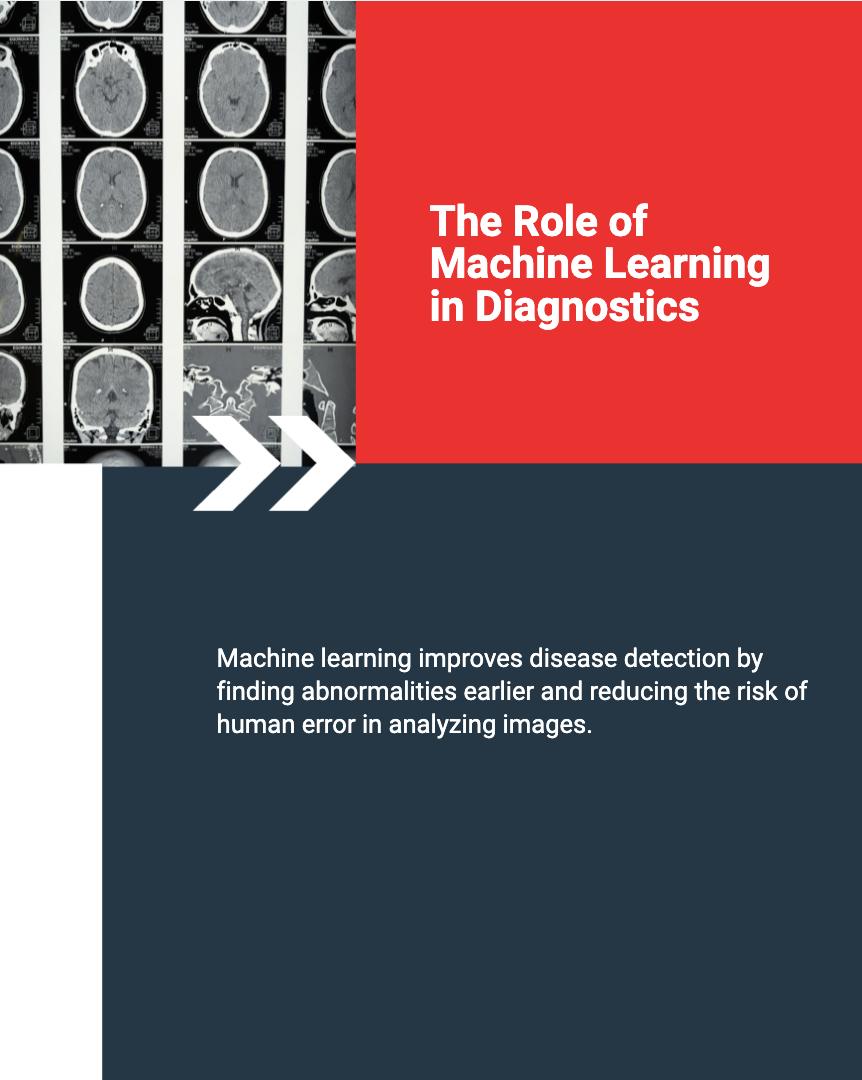
Machine learning is revolutionizing radiology with efficiency, precision, and improved patient outcomes.
1. Faster and More Accurate Diagnoses
2. Reduced Workload for Radiologists
3. Enhanced Decision Support
4. Cost Efficiency in Healthcare
Despite its advantages, integrating machine learning into radiology faces challenges.
1. Data Privacy and Security Concerns
2. Bias in AI Models
3. Lack of Standardization
4. Ethical and Legal Issues
5. Integration with Existing Systems
As technology advances, AI-powered radiology is set to become even more sophisticated.
1. AI-Assisted Workflows
2. Federated Learning for Privacy-Preserving AI
3. Explainable AI (XAI) for Transparency
4. Integration of Multimodal Data
5. AI-Powered Teleradiology
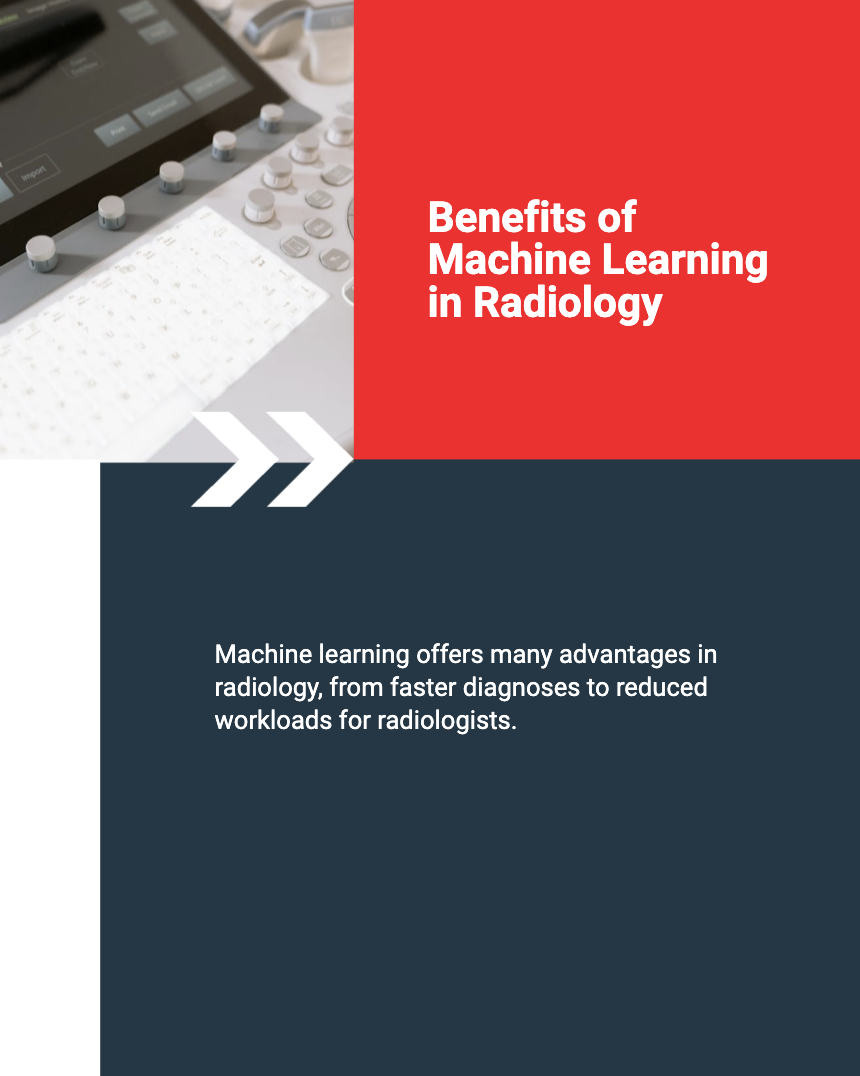
Machine learning is revolutionizing radiology by enhancing diagnostics, improving treatment planning, and reducing radiologists' workload. With AI-powered tools, early disease detection and personalized treatments are becoming more accessible, leading to better patient outcomes.
While challenges exist, continuous advancements in AI, improved data privacy measures, and ethical considerations will shape the future of machine learning in radiology. As AI becomes more refined, radiologists and healthcare providers must embrace it as a collaborative tool rather than a replacement, ensuring accurate, efficient, and patient-centered care.
1. Can AI replace radiologists?
No, AI is designed to assist radiologists, not replace them. Machine learning enhances efficiency and accuracy but still requires human expertise for final decisions.
2. How accurate are AI models in radiology?
AI models can achieve over 90% accuracy in detecting some diseases, but performance depends on the quality of training data and the specific condition being analyzed.
3. What are the risks of using AI in radiology?
Risks include data privacy issues, algorithmic bias, and the potential for false positives or negatives. AI should be used as a decision-support tool rather than a standalone system.
4. How do hospitals implement machine learning in radiology?
Hospitals integrate AI by:
5. What is the future of AI in radiology?
The future includes more accurate AI models, explainable AI for transparency, and integration with genetic and clinical data to provide holistic patient insights.
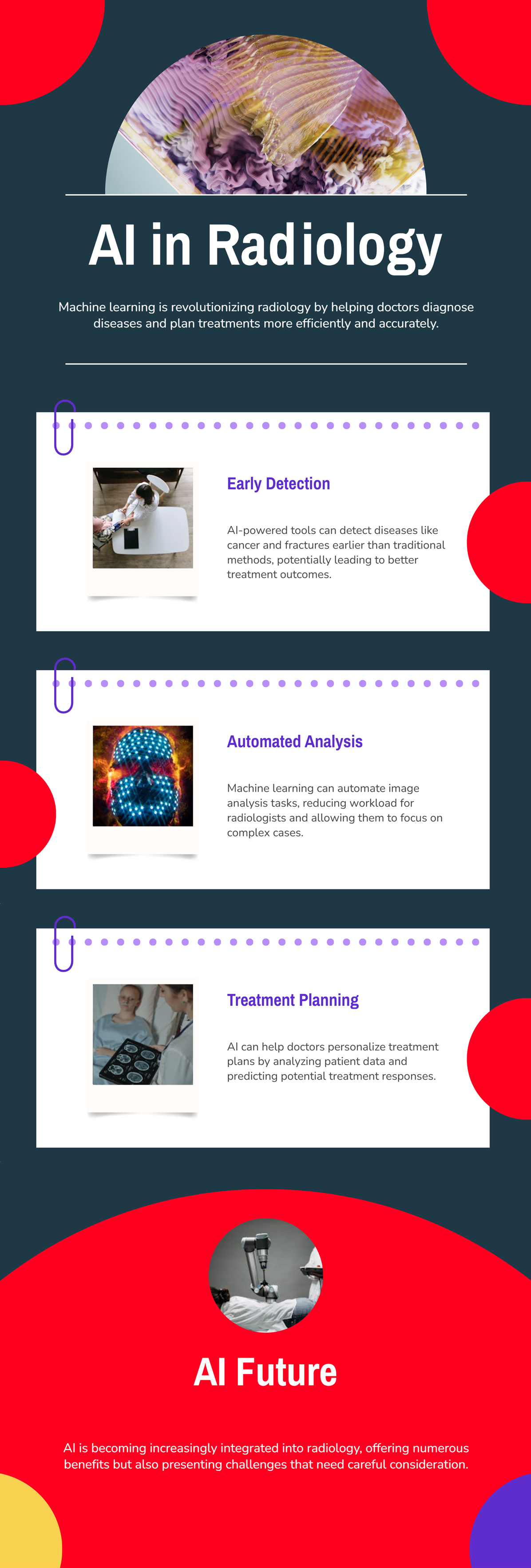 03.04.2025
03.04.2025